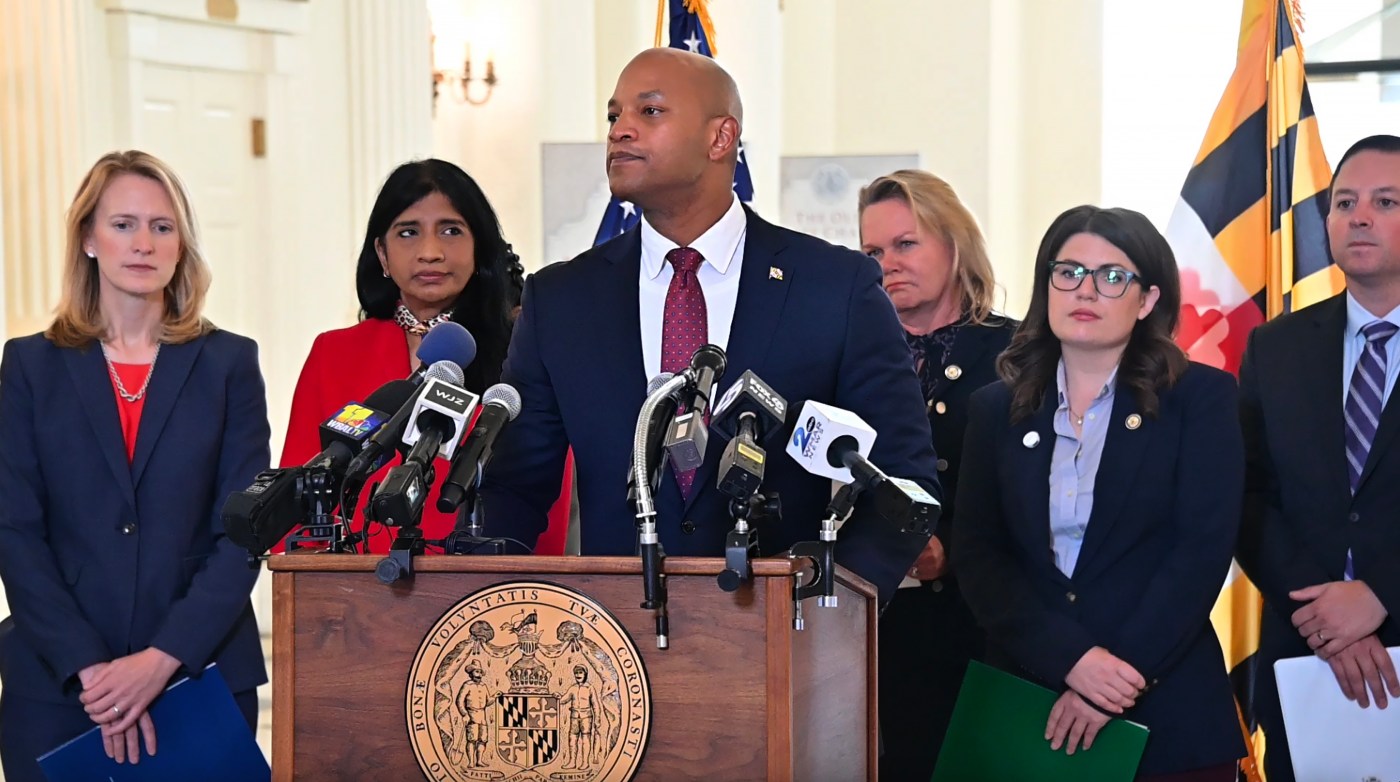Politics
Maryland’s Redistricting Debate: Should Democrats Play Hardball?

The ongoing debate over redistricting in Maryland has intensified, particularly following a recent opinion piece by Colin Pascal. The commentary, published on November 10, criticizes the actions of Governor Wes Moore, who is advancing a redistricting plan aimed at addressing electoral challenges faced by the Democratic Party.
Pascal’s argument suggests that Moore’s approach undermines democratic principles by participating in what he views as a corrupt practice of gerrymandering. Yet, a response from local resident Herb Cromwell articulates a different perspective, asserting that Democrats must adapt to the political landscape shaped by Republican strategies. Cromwell argues that Democratic losses in elections can be attributed, in part, to a reluctance to engage in partisan gerrymandering, which he describes as a tactic used by Republicans to manipulate electoral outcomes.
According to Cromwell, the failure of congressional Republicans to support H.R. 1 in 2019 and 2021 has contributed to the ongoing issue of partisan gerrymandering in the United States. This legislation aimed to impose restrictions on gerrymandering practices, but its blockage has left states vulnerable to drawing districts that favor one party over another. He points to states like Virginia and Indiana, which may soon adopt similar tactics to those seen in Texas, Missouri, and North Carolina—states that have successfully implemented redistricting plans that benefit Republicans.
Cromwell emphasizes that the Democratic Party needs to respond in kind. “Blue states need to play just as dirty,” he states, highlighting the example of California as a state that has attempted to navigate these political challenges more aggressively. He argues that Maryland should follow suit and not shy away from employing strategies that ensure fair representation for its voters.
This commentary reflects broader concerns regarding electoral integrity and representation in the United States. As redistricting processes unfold in various states, the debate over whether to engage in partisan gerrymandering remains a contentious issue.
In Maryland, the implications of these decisions extend beyond political strategy; they impact the fundamental principle of democracy where voters should choose their representatives, rather than the other way around. As the state moves forward with its redistricting efforts, the discussions surrounding these tactics will likely continue to shape the political landscape for years to come.
Cromwell’s commentary serves as a rallying cry for Democrats in Maryland to reconsider their stance on gerrymandering and to take decisive action in the face of a shifting electoral environment. As the clock ticks on the redistricting process, the decisions made now could resonate through future elections, underscoring the importance of strategic engagement in an increasingly polarized political arena.
-

 World4 weeks ago
World4 weeks agoGlobal Air Forces Ranked by Annual Defense Budgets in 2025
-

 World4 weeks ago
World4 weeks agoMass Production of F-35 Fighter Jet Drives Down Costs
-

 Top Stories4 weeks ago
Top Stories4 weeks agoNew ‘Star Trek: Voyager’ Game Demo Released, Players Test Limits
-

 Science4 weeks ago
Science4 weeks agoTime Crystals Revolutionize Quantum Computing Potential
-

 World4 weeks ago
World4 weeks agoElectrification Challenges Demand Advanced Multiphysics Modeling
-

 Business4 weeks ago
Business4 weeks agoGold Investment Surge: Top Mutual Funds and ETF Alternatives
-

 Top Stories4 weeks ago
Top Stories4 weeks agoDirecTV to Launch AI-Driven Ads with User Likenesses in 2026
-

 Lifestyle4 weeks ago
Lifestyle4 weeks agoDiscover Reese Witherspoon’s Chic Dining Room Style for Under $25
-

 Entertainment4 weeks ago
Entertainment4 weeks agoFreeport Art Gallery Transforms Waste into Creative Masterpieces
-

 Health4 weeks ago
Health4 weeks agoGavin Newsom Critiques Trump’s Health and National Guard Plans
-

 Business4 weeks ago
Business4 weeks agoUS Government Denies Coal Lease Bid, Impacting Industry Revival Efforts
-

 Science3 weeks ago
Science3 weeks agoRemembering David E. Brest: A Life Dedicated to Nature and Family









